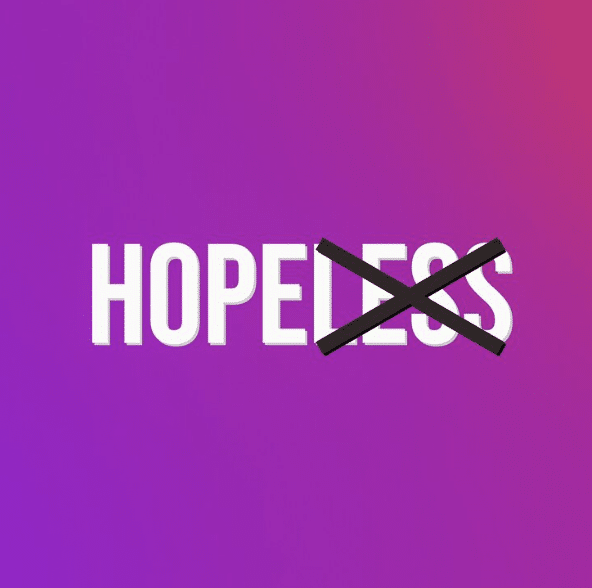by Vanessa H. Roddenberry, Ph.D., HSP-P
June is a month of significant importance, as it encompasses various observances that shed light on vital societal issues. In June, we not only celebrate Pride Month and the historic significance of Juneteenth, but we also recognize it as PTSD Awareness Month. This convergence presents an opportune moment to explore the intersections between trauma, race, identity, and the role they play in shaping individual experiences. In this blog post, we will discuss the impact of trauma on different communities, the likelihood of developing PTSD, and the importance of increasing awareness while fostering hope. We will delve into the profound impact of trauma, particularly racial trauma and LGBTQIA-related issues, while emphasizing the importance of increased awareness and fostering hope.
PTSD Awareness Month: A Time for Reflection and Understanding
June serves as an important platform to raise awareness about post-traumatic stress disorder (PTSD), a psychological condition that may develop after experiencing or witnessing a traumatic event. PTSD can manifest in a range of symptoms, including intrusive thoughts, nightmares, hypervigilance, and avoidance behaviors, which can significantly affect an individual’s overall well-being and quality of life.
Intersections of Trauma: Race, Identity, and Racial Trauma

Trauma is not experienced in isolation but often intersects with various factors, such as race and identity. Racial trauma refers to the psychological and emotional distress caused by experiences of racism, discrimination, and systemic oppression. The impact of racial trauma is deeply rooted in historical, cultural, and societal factors and can lead to profound psychological distress, similar to PTSD symptoms.
Juneteenth: Historical Trauma and Racial Identity:
As we commemorate Juneteenth, the holiday marking the emancipation of enslaved African Americans, we must recognize the historical trauma endured by Black communities and its ongoing effects. The experiences of racial discrimination, inequality, and systemic racism can significantly contribute to the development of PTSD symptoms. Acknowledging and addressing this collective trauma is crucial for supporting healing and promoting resilience.
LGBTQIA Issues and Trauma: An Intersectional Perspective:
June is also Pride Month, which highlights the resilience, struggles, and achievements of the LGBTQIA community. Unfortunately, LGBTQIA individuals often face higher rates of trauma, including discrimination, violence, and rejection based on their sexual orientation or gender identity. These experiences can increase the likelihood of developing PTSD symptoms, further impacting their mental health and well-being.
Factors Influencing LGBTQIA Trauma and PTSD:
Several factors contribute to the increased risk of trauma and PTSD among LGBTQIA individuals. These include societal stigma, rejection from family and friends, higher rates of victimization, and lack of legal protections. Intersectional identities, such as being a person of color or transgender, can compound these challenges, heightening the risk of trauma and its psychological consequences.
The Importance of Increased Awareness and Support:
Raising awareness about PTSD, racial trauma, and LGBTQIA issues is vital for creating a more inclusive and supportive society. By acknowledging the unique experiences of individuals at these intersections, we can foster empathy, reduce stigma, and provide appropriate resources and treatment options. Mental health professionals can play a significant role in advocating for change, educating the community, and offering culturally sensitive and trauma-informed care.
Building Hope: Resilience and Healing:
While the discussion of trauma can be heavy, it is essential to emphasize hope and resilience. Healing is possible, and individuals affected by trauma can find strength in their identities, communities, and supportive relationships. By creating safe spaces, promoting social justice, and advocating for equality, we can empower individuals to heal from trauma and thrive in their lives.
Conclusion:
As we enter June, let us recognize the significance of PTSD Awareness Month and acknowledge the intersections of trauma with race, identity, and sexual orientation. By increasing awareness, promoting understanding, and advocating for change, we can create a more compassionate and inclusive society. Let us stand together, build hope, and support those impacted by trauma as they embark on their journey towards healing and resilience.
If you are struggling with a mental health issue, such as PTSD, know that there are effective treatments that can help you recover faster than you imagine. You can build a life in which you feel empowered and motivated. We’re here to help you by offering a safe space, knowledgeable and compassionate providers, and a trauma-informed lens. We understand that your experience is complex and the only true expert on you is you. We work with you to develop a plan of care that is evidence-based, centered on the latest psychological science, and grounded in a sense of your personal needs and history.
Let us help you through whatever difficult times you may be facing. You matter. Your mental health is important, and you don’t have to do this alone.
Reach out to us today to learn more about how we can help you. Whether it’s setting up a free consultation, scheduling an appointment for individual therapy, group therapy, or couples therapy, or discussing a psychological evaluation, we have your back.
Front desk scheduling number: (919) 899-0471 x 5 or [email protected].





